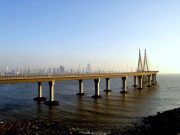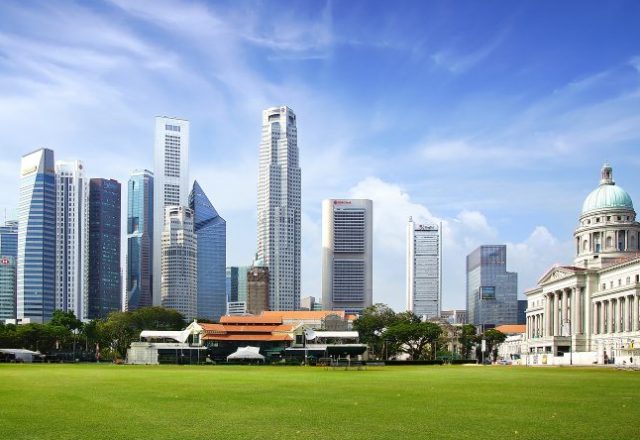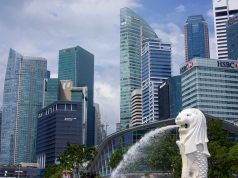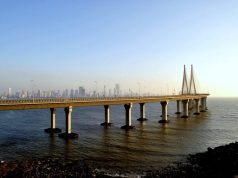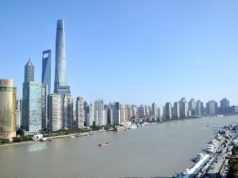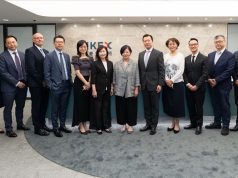Ministerial Statement on Singapore’s Anti-Money Laundering Regime – Speech by Mrs Josephine Teo, Minister for Communications and Information & Second Minister for Home Affairs
3rd October 2023
Introduction
1. Mr Speaker, on 15 August 2023, more than 400 Police officers conducted simultaneous raids at multiple locations island-wide. Ten persons were arrested and charged for offences including laundering proceeds from overseas criminal activities, and their seizable assets in Singapore were seized.
2. This is one of Singapore’s largest anti-money laundering operations. Many Parliamentary Questions have been filed. They centre around:
(a) the effectiveness of Singapore’s existing measures to detect and counter money laundering activities; and
(b) whether additional measures are needed to curb money laundering in Singapore.
3. My statement will be in five parts.
(a) First, an update on this case and the investigations.
(b) Second, money laundering risks in international financial centres.
(c) Third, an overview of Singapore’s anti-money laundering regime.
(d) Fourth, the immigration related issues that have arisen from this case.
(e) Fifth, an outline of our plans to ensure that Singapore’s anti-money laundering regime remains robust and effective.
4. After my statement, there will be statements by Second Minister for Finance and National Development Ms Indranee Rajah, and Minister of State and MAS Board Member Mr Alvin Tan.
Brief Background on the Case
5. Sir, let me start with how the case unfolded. Mr Murali Pillai, Mr Gan Thiam Poh and Assoc Prof Jamus Lim asked whether there were red-flag indicators before the arrests were made, and whether the arrested persons will be investigated for running organised crime syndicates or for criminal offences in other jurisdictions.
6. Sir, the intelligence gathering and planning for a major operation like this are not trivial. They take months, years even. I will share what I can, without undermining ongoing investigations by Police.
7. Police had initially received disparate information on suspicious activities. In 2021, our anti-money laundering regime picked up a few signals, including the use of suspected forged documents to substantiate sources of funds in bank accounts in Singapore. Some Suspicious Transaction Reports (STRs) were filed by financial institutions and other companies. Police began looking separately into these alerts.
8. In early 2022, Police launched a comprehensive, coordinated intelligence probe. The probe uncovered a web of individuals believed to have connections amongst themselves, including by familial ties.
9. Police analysed the information and probed further, quietly. To avoid alerting the suspects, the work was kept to a very small group of officers, and a decision was made to hold off any enforcement or overt investigative actions. Police’s aim was to probe extensively and develop as full a picture as possible of the suspects and their associates, their suspected criminal activities, and their assets, before making any move against them.
10. As the probe progressed, the web uncovered by Police grew and grew. More and more individuals were implicated in the alleged money laundering operation, and more and more of their assets held in Singapore were discovered. Police painstakingly and discreetly traced their ties and assets.
11. Members would appreciate that anti-money laundering probes of this scale and nature are complex. Connecting the dots between people and things is a lot easier said than done. We also had to be very discreet, and so Police moved cautiously and with only a very small team. Had the suspects caught wind of our probes, the suspects and their assets might have fled, and the investigations and the entire operation might have been jeopardised.
12. Earlier this year, the Police assessed that they had enough information, and consulted the Attorney-General’s Chambers. AGC assessed that we had sufficient reason to suspect that criminal offences had been committed in Singapore.
13. Following the intensive intelligence probes, extensive reviews of information and examination of evidence, Police moved decisively against the suspects on 15 August this year.
14. There has been some speculation circulating in news outlets – internationally and domestically – that this operation was carried out at the behest of China. This is completely untrue.
15. Singapore does not need another country to tell us what to do to enforce our laws, nor will we do anything unless it is in our own interests. In this case, we started investigations because we suspected that offences had been committed in Singapore. Once we confirmed our suspicions, we acted.
Facts of the Case
16. So far, ten persons have been arrested and charged for offences including laundering criminal proceeds. As investigations are ongoing, I will provide an update to the extent possible:
(a) The proceeds likely came from criminal activities that took place outside of Singapore. These include illegal online gambling and unlicensed money lending.
(b) In addition to money laundering, some of the accused have been charged with forgery as well. Two of the ten persons have been charged with additional offences of resisting arrest and perverting the course of justice.
(c) Many others, not arrested, are assisting with investigations. Yet others are wanted by Police for investigations but are not in Singapore.
(d) On 20 September, Police updated that the total value of assets seized or issued with prohibition of disposal orders stood at more than S$2.4 billion. Since then, Police have conducted further operations and extensive investigations. To date, the total value of assets seized or issued with prohibition of disposal orders by the Police stands at more than S$2.8 billion. This includes:
(i) Prohibition of disposal orders issued against 152 properties and 62 vehicles with a total estimated value of more than S$1.24 billion, as well as thousands of bottles of liquor and wine.
(ii) Seizures of monies in bank accounts amounting to more than S$1.45 billion, cash (including foreign currencies) amounting to more than S$76 million, cryptocurrencies of more than S$38 million, 68 gold bars, 294 luxury bags, 164 luxury watches, and 546 pieces of jewellery.
(iii) Police’s investigations are still ongoing. As we probe further, there may be more arrests and assets seized.
17. There has been some interest in how we deal with the seized assets. Mr Zhulkarnain asked about this.
(a) The seized assets will be dealt with accordingly and under our laws, depending on the findings.
(b) The disposal will be conducted by the courts.
18. There are also ongoing probes by various sectoral regulators, including Government agencies overseeing corporate service providers, real estate agents, financial institutions, and others. Police are working closely with the sectoral regulators, and will take action against the companies and individuals should criminal offences be disclosed, such as abetment of money laundering. If there is negligence or non-compliance with anti-money laundering requirements, the sectoral regulators will take action.
19. Some of the arrested individuals made donations to charities in Singapore. Mr Edward Chia asked whether these are being investigated. Some charities have decided on their own to ringfence these donations. Others have made Police reports and plan to surrender the monies to the Police. The Commissioner of Charities will issue an advisory to encourage all charities to review their donor records to ascertain whether they have received donations from the arrested individuals and entities linked to them, and file the requisite suspicious transaction reports. It will also include advice to charities on how to handle the monies.
20. In summary, this case is one of the largest anti-money laundering operations not just in Singapore, but likely the world. We probed extensively to uncover the linkages. We were comprehensive in our actions and operation.
21. We will not hesitate to take strong enforcement action against people who would use Singapore as a haven to launder proceeds of crime. We will deal with them and their ill-gotten gains to the fullest extent of our laws.
Money Laundering Risks Which International Financial Centres Face
22. Let me now provide the backdrop to the anti-money laundering operation which we have just carried out, in particular the risks that global financial hubs like Singapore face.
23. Singapore is an attractive place for investments and businesses. There is political and economic stability, strong rule of law, and transparency. People are assured that their money is safe here.
24. The facts speak for themselves. Singapore was ranked third in the Global Financial Centre Index last year, behind only New York and London. Our ability to attract international funds has facilitated investments, growth, and good jobs for Singaporeans. The financial sector contributes about 14% of our GDP and employs about 200,000 people. It is important for us.
25. When we open for business – and we must be – criminals will also try to exploit the same economic openness and our strong reputation for the rule of law, to launder their illicit funds, and create the appearance of legitimacy.
26. In fact, all major financial hubs, not just Singapore, are vulnerable. The same characteristics that make them attractive as financial hubs also make them attractive targets for money laundering. Reputable jurisdictions like Singapore take our anti-money laundering responsibilities seriously and pursue cases thoroughly.
27. Mr Saktiandi Supaat and Ms Foo Mee Har have asked how our efforts compare with others.
(a) In February last year, the US Department of Justice announced its largest financial seizure to date of more than US$3.5 billion (equivalent to about S$4.8 billion). This was linked to the laundering of billions of dollars in cryptocurrency stolen from a 2016 hack of Bitfinex, a cryptocurrency exchange registered in the British Virgin Islands.
(b) In January this year, Hong Kong Customs arrested nine persons suspected of 7,600 illicit deals involving over HK$6 billion (equivalent to about S$1 billion). The individuals were found to have operated multiple bank accounts for illegal transactions.
(c) Earlier this year, in a case similar to ours, the Australian Federal Police, or AFP, charged nine members of an international money laundering syndicate. They had enabled multiple transnational organised crime groups to launder funds derived from criminal activities. The AFP restrained more than AU$150 million (equivalent to about S$130 million) in property, cash and luxury items.
28. What about Singapore? Everyone knows that we have a zero tolerance approach for money laundering. But just as low crime does not mean no crime, zero tolerance does not mean zero occurrence. We are under no illusion that we can always keep out dirty money.
29. As one of the leading international financial centres in the world, the daily transactions in Singapore are voluminous. We have to rely on various stakeholders – the financial institutions and other gatekeepers in the system like corporate service providers, property agents, precious stones and precious metals dealers – to conduct the necessary checks and detect possible risks. A lot of it is picked up and acted upon.
30. This is therefore not the first time that we have taken serious enforcement action against money laundering and breaches of our money laundering requirements.
(a) Members would recall the transnational case related to 1MDB, involving illicit flows through Singapore. Police extensively investigated the individuals who were suspected of committing offences in Singapore, while MAS thoroughly examined the financial institutions through which the funds flowed. Assets amounting to more than S$240 million were seized or prohibited. 3 bankers were convicted for failure to report suspicious transactions and fined between S$10,000 and S$128,000 each. One banker was convicted of offences including money laundering and sentenced to more than 4 years imprisonment. MAS issued to 11 individuals prohibition orders ranging from 3 years to lifetime bans from working in Singapore’s financial sector, for their gross misconduct.
(b) Another example involved Wirecard. Following news of irregularities in Wirecard’s financial statements and the alleged involvement of Singapore-based individuals and entities in the matter, MAS closely examined these suspicions. Three banks and an insurer in Singapore were issued penalties amounting to S$3.8 million for failure to perform customer due diligence and to adequately establish the sources of wealth of high-risk customers. Seven individuals have been charged in relation to this case. Three of them have been convicted for offences including money laundering.
31. These examples leave no doubt that Singapore takes money laundering seriously. When there is reasonable suspicion to investigate, we do not hesitate to do so. We do not turn a blind eye to any risks, once we are made aware of them. This is not the first time that we have taken serious enforcement action against money laundering offences. Nor will it be the last.
32. Even with stringent measures in place, we continuously review our practices. Each time we tighten up, the realistic aim is not to expect that no dirty money will ever come in, because that would inevitably also affect legitimate investments and businesses. Instead, the aim is to reduce risk, have a robust alert system, and take prompt enforcement action when we discover such activities, as we did in this case.
33. We must also not fool ourselves into thinking that no news is good news. Instead, we must have the capability to detect wrongdoings, and when we do, have the resolve to act decisively and robustly.
Overview of Singapore’s Strategy Against Money Laundering
34. This is why we have steadily and systematically built up our anti-money laundering regime over the years.
35. We adopt a holistic ecosystem approach – across the government, public-private partnership, and international collaboration.
36. A whole-of-Government effort is led by an inter-agency steering committee co-chaired by PS/MHA, 2PS/MOF and MD/MAS.
37. There is close partnership between the public and private sectors. An example is the AML/CFT Industry Partnership, or ACIP. Co-chaired by MAS and the Police, ACIP brings together financial institutions to share analyses of emerging money laundering and terrorism financing risks, as well as intelligence on specific cases.
38. Internationally, Singapore currently holds the presidency of the Financial Action Taskforce, or FATF for short. FATF is an international organisation that sets the global standards to prevent money laundering and terrorist financing activities. We have been playing an active role in helping to enhance cross-border collaboration and strengthen anti-money laundering controls against new risk typologies.
39. Singapore’s anti-money laundering strategy has three prongs, that applies across various sectors:
(a) First, Prevention, underpinned by a robust legal and regulatory framework to deter criminals.
(b) The second prong, Detection, is anchored by our suspicious transaction reporting, or STR regime and supervision by sectoral regulators.
(c) Our third prong, Enforcement, is about taking strong action when there is suspicion of money laundering.
40. Allow me to elaborate.
Prevention
41. We have a robust legal and regulatory framework. Gatekeepers in various sectors have to comply with anti-money laundering requirements, including the conduct of due diligence.
42. Financial institutions are important gatekeepers. MAS requires them to conduct rigorous Know Your Customer (KYC) processes when accounts are opened, and Customer Due Diligence (CDD) on transactions. MAS ensures financial institutions’ adherence to the anti-money laundering requirements through close supervision and surveillance.
43. Besides the financial institutions, designated non-financial businesses and professions (or DNFBPs, for short) in other industries are also legally required to conduct KYC and CDD for their customers and transactions.
(a) DNFBPs are gatekeepers in sectors that are known internationally to present higher risks of money laundering. They include real estate agents for property transactions, corporate service providers for company incorporation, and dealers of precious stones and precious metals.
(b) There are also DNFBPs that provide professional services such as lawyers and accountants.
(c) The Government agencies regulating the respective sectors regularly engage with the gatekeepers, to ensure that they adhere to the anti-money laundering requirements.
44. Customers to these financial institutions and DNFBPs are also held accountable. Mr Murali asked whether it is a criminal offence if customers refuse to provide, or provide false or misleading information to commercial entities conducting CDD checks.
(a) If financial institutions and DNFBPs assess that certain information from their customer is required for the CDD checks, and their customer refuses to provide the information, this should itself raise red flags. Financial institutions and DNFBPs would be legally required to file an STR if there are reasonable grounds to suspect that a transaction is connected to criminal conduct.
(b) If a customer intentionally provides false or misleading information to commercial entities in order to circumvent the CDD checks, this may constitute a criminal offence under the Penal Code. We deal with this seriously.
Precious Stones and Precious Metals
45. Several members – Mr Zhulkarnain, Ms Hany Soh, Miss Rachel Ong, Mr Don Wee, Mr Murali and Mr Neil Parekh – enquired about the anti-money laundering laws related to high value items.
46. The Precious Stones and Precious Metals (Prevention of Money Laundering and Terrorism Financing) Act, or the “PSPM Act”, covers precious stones and precious metals, or “PSPM”; and “precious products” which refer to any jewellery, watch, or other finished product where at least 50% of its value is attributable to precious stones or precious metals. Simply put, among the items seized, gold bars would be covered by our laws. Some watches and jewelleries would also be covered, depending on the proportion of their value which is attributable to PSPM.
47. PSPM dealers are required to perform CDD before they conduct transactions involving cash exceeding S$20,000, or where there are reasons to suspect money laundering. As PSPMs may easily be converted to cash, PSPM dealers are also required to file cash transaction reports with the Suspicious Transaction Reporting Office of the Commercial Affairs Department, or STRO, if they conduct transactions involving cash exceeding S$20,000.
48. Mr Zhulkarnain asked what measures are in place to ensure that the requirements are not circumvented. PSPM dealers are subject to inspections, to ensure compliance with our regulations. Appropriate enforcement actions are taken against contraventions of the PSPM Act. To the question by A/P Razwana, since 2021, 96 enforcement actions have been taken against PSPM dealers for failure to comply with Customer Due Diligence and cash transaction reporting requirements.
High Value Movable Assets That Are Unregulated
49. A number of the suspects had purchased high-value assets such as luxury cars, bags, liquor and ornaments. These were among the assets that were seized, or issued with a prohibition of disposal order. They are currently not regulated, unlike for example, PSPMs.
50. In fact, Singapore’s AML/CFT requirements comply with international standards set by FATF, which takes a risk-based approach targeting areas that have been assessed internationally to present higher money laundering risks. We will examine if Singapore needs to extend anti-money laundering requirements to new classes of assets, beyond what FATF has recommended. This has to be evaluated carefully so that we do not end up unduly inconveniencing legitimate businesses and customers.
Detection
51. The second prong of our AML regime is detection, of which a cornerstone is the STR regime. Our laws make it a duty for everyone – including but not limited to landlords, property developers, financial institutions, and corporate service providers – to report suspicious transactions.
52. Under Section 45 of the Corruption, Drug Trafficking and Other Serious Crimes (Confiscation of Benefits) Act, or “CDSA”, all persons have a duty to inform STRO, if the person knows, or has reasonable grounds to suspect, through the course of his profession or business, that any property or transaction they are dealing with, may be illicit. There is no minimum threshold for STR filing. There are also sector-specific requirements to file STRs.
53. We take STR reporting obligations seriously. Failure to file an STR is an offence. We have taken and will take action against those who failed to file an STR when it was merited.
54. Several members – Mr Dennis Tan, Ms Sylvia Lim, Mr Vikram Nair, Mr Wee, Ms Ng Ling Ling, Assoc Prof Razwana Rahim, Mr Derrick Goh – enquired about our STR regime. These queries centre around:
(a) The extent to which STRs are filed; and
(b) Whether information obtained from STRs is shared across government agencies; as well as
(c) Whether any updates will be made to enhance the effectiveness of our STR regime.
55. Sir, Singapore handles massive volumes of transactions every day. The reality is that this sheer volume provides easy camouflage for illicit activities. Spotting a suspicious transaction among millions is challenging.
56. To improve effectiveness, STRO has worked with sectoral regulators to develop red flag indicators to improve the detection of money laundering activities by gatekeepers. The red flag indicators are regularly updated, to take into account emerging risk types in the money laundering landscape.
57. STRO received an average of 43,000 STRs annually between 2020 and 2022; that’s more than 150 every working day. Over 80% were filed by our financial institutions.
58. Intelligence received, whether from STRs, STRO’s foreign counterparts, or other sources, is analysed thoroughly and extensively by STRO. If STRO assesses that the information is relevant, it will disseminate the information to relevant Government agencies which will then conduct further investigations.
59. All this work done by the STRO, sectoral regulators and Police is incredibly difficult. It’s not just one needle in a haystack, but one needle in several haystacks. It’s also not a static field, because determined money launderers are always finding new ways to hide their tracks and avoid detection. In Chinese, we say 道高一尺,魔高一丈. Against this backdrop, it is remarkable that our officers were able to uncover this web, and in a fairly short time.
60. STRO will of course continue to update its methods and help agencies better connect the dots. In February last year, STRO commissioned a new data analytics system to enhance its ability to process large volumes of STRs, and raise the quality of financial intelligence disseminated to domestic law enforcement agencies.
61. But let us understand that this is a never-ending challenge. With each new case, we will gain fresh insights and enhance our ability to detect the next one.
Enforcement
62. Third, enforcement. As members would know, we take firm enforcement action against money laundering activities. From 2020 to 2022, at least 240 individuals were convicted of money laundering offences, largely for laundering domestic scam proceeds. In that same period, Police seized more than 1.2 billion dollars’ worth of assets in money laundering investigations.
63. Mr Yip asked how many money laundering and forgery related cases involving S$500 million and above have been reported in the past three years. Mr Goh asked how we are deepening cooperation with foreign authorities to stem money laundering risks. Allow me to address them together.
64. Let me cite a case which involved working closely with foreign authorities to trace and interdict illicit proceeds in Singapore. In February 2021, the Police received information from our international partners and commenced investigations into a case of embezzlement of Angolan state funds that was alleged to have been laundered through foreign banks into Singapore. In the course of investigations, SPF seized over S$750 million from several bank accounts in Singapore.
65. Another example of our cooperation with international counterparts:
(a) We rendered assistance to UK law enforcement agencies for the case involving former Formula One boss Bernie Ecclestone.
(b) The MAS, the Police and AGC worked closely with UK authorities on their investigation and prosecution of Ecclestone. Singapore had proactively shared relevant information with our UK counterparts, which helped them develop their case.
66. Domestic sectoral regulators have also taken to task entities which fell short of their legal obligations. For example, MAS has taken firm enforcement actions where financial institutions’ controls had been unsatisfactory. In the past five years, 17 financial institutions had been taken to task for breaches of MAS’s AML/CFT requirements.
Immigration-Related Issues
67. Members – Ms Foo, Assoc Prof Lim, Mr Patrick Tay, Mr Don Wee, Mr Alex Yam, Mr Leong Mun Wai – had filed questions relating to the entry and stay of foreign nationals in Singapore. Specifically,
(a) How do we scrutinise applications for work passes and other immigration facilities; and
(b) How we step up checks on high-risk individuals, including those with criminal records or who are wanted in foreign jurisdictions, or who may have used false identities.
68. Let me first provide an update on the immigration status of the individuals under arrest.
(a) To recap, 10 persons have been arrested and charged. They hold Employment Passes and Dependant’s Passes. At the time of their applications, none of them were on INTERPOL’s Red Notice.
(b) As I updated earlier, Police has been casting its net much wider than these ten.
(c) Investigations are ongoing, and many persons have been interviewed, and more will be. They include Singaporeans, Permanent Residents, and those on different types of immigration passes. Anyone who is found complicit in the wrongdoing after ongoing investigations will be dealt with in accordance with the law, regardless of their immigration status, or whether they are Singapore Citizens.
69. We have frameworks in place for the assessment of applications for work passes and other long term immigration facilities. The frameworks incorporate information from multiple sources and agencies. Applicants are screened against a database of blacklisted individuals. We use data analytics to identify and scrutinise higher-risk applications. Foreigners convicted of an offence in Singapore may be deported from Singapore, and in some cases, banned permanently.
70. Mr Wee asked whether we work with foreign governments to verify the information provided by applicants. Where the agencies have suspicions, we do so. Our Singapore overseas missions also help to verify the authenticity of the documents. However, given the volume of applications, it is not possible to conduct verification checks for all of them.
71. Members will appreciate that no screening process is fool-proof. We will review how to tighten our verification checks at various points. At the same time, we should be sensible. Most people are not illegal money launderers or criminals. If we make the rules too tight, then it is the vast majority of innocent applicants who will be unnecessarily penalised. The crooks will still try to find a way around the rules.
72. So we need rules, we need to apply them, but let us be careful about knee jerk reactions, which may make our business environment unfriendly. What we need are rules which are internationally accepted, and workable. Our task is to minimise the risks, and increase our ability to catch these persons, without affecting the majority of proper, legal transactions.
73. Should there be further clarifications on the work pass application regime, my colleague, Minister Tan See Leng will address them later.
Conclusion
74. Sir, let me conclude.
75. Singapore has in place a robust anti-money laundering regime. We are held in high regard internationally not just as a financial centre, but for our strong, principled and no-nonsense approach to taking down individuals who break our laws.
76. In its last evaluation of Singapore in 2016, the FATF assessed Singapore to have a strong legal and institutional framework against money laundering and terrorism financing. We achieved substantial results in several aspects, even as a few areas were identified for improvement.
77. We have moved since the evaluation to address these areas and to further strengthen our regime. We have updated our prevention frameworks to keep pace with the evolving risks and typologies of money laundering, and strengthened our capabilities to proactively detect and take firm enforcement action.
78. Nevertheless, this case is a reminder that even the most stringent preventive measures can be circumvented by determined criminals. But it also shows that our system is able to detect suspicious individuals and activities, and that when we do, we have the resolve and capabilities to track them down, and take them to task.
79. Just as low crime does not mean no crime, zero tolerance of money laundering does not mean zero occurrence. This is not the first time Singapore has detected and acted against such money launderers, nor will it be the last.
80. As I mentioned, we have been undertaking ongoing reviews in the various sectors, to tighten our anti-money laundering regime. Learning from this case, we will consider further measures to strengthen our regime. Second Minister for Finance Indranee Rajah will be leading an Inter-Ministerial Committee involving the relevant sectoral regulators. Later in her speech, she will outline its terms of reference and priorities.
81. Sir, this Police investigation has strengthened our reputation as a serious, high quality financial centre, and for law and order. It will strengthen trust and confidence among investors, and Singaporeans, that we run a clean system that stands amongst the tallest in the world.
82. With your permission, I will respond to any clarifications which members may have, after my colleagues have made their statements.
83. Thank you.
Sign Up / Register
Caproasia Users
- Manage $20 million to $3 billion of assets
- Invest $3 million to $300 million
- Advise institutions, billionaires, UHNWs & HNWs
Caproasia Platforms | 11,000 Investors & Advisors
- Caproasia.com
- Caproasia Access
- Caproasia Events
- The Financial Centre | Find Services
- Membership
- Family Office Circle
- Professional Investor Circle
- Investor Relations Network
Monthly Roundtable & Networking
Family Office Programs
The 2025 Investment Day
- March - Hong Kong
- March - Singapore
- July - Hong Kong
- July - Singapore
- Sept- Hong Kong
- Sept - Singapore
- Oct- Hong Kong
- Nov - Singapore
- Visit: The Investment Day | Register: Click here
Caproasia Summits
- The Institutional Investor Summit
- The Investment / Alternatives Summit
- The Private Wealth Summit
- The Family Office Summit
- The CEO & Entrepreneur Summit
- The Capital Markets Summit
- The ESG / Sustainable Investment Summit



